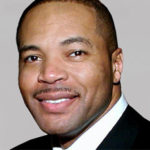A federal judge has ruled that requiring a mosque to have more parking spaces than churches or synagogues is unconstitutional, citing in part a friend-of-the-court brief filed by a diverse coalition of civil rights and religious groups including the Baptist Joint Committee for Religious Liberty and two agencies of the Southern Baptist Convention.
U.S. District Court Judge Michael Shipp ruled Dec. 31 that a New Jersey town’s main reason for rejecting the Islamic Society of Basking Ridge’s application to construct a mosque amounted to discrimination based on religious belief.
Amid public opposition, the Bernards Township planning board met 39 times before rejecting the Islamic Society’s rezoning request in December 2015, saying a 3:1 ratio between seats and parking spaces required for churches would not be adequate for a mosque that meets on Friday afternoon, when traffic flow is different than on a Sunday.
Previously the planning commission applied the church ordinance to two Jewish synagogues and in 2007 allowed a Baptist church to build with fewer spaces than required with the understanding the congregation would arrange for shuttle service to and from an off-site parking area.
The federal judge said the parking ordinance is unconstitutionally vague as to what qualifies as a “church” and gave township officials “impermissible discretion” to discriminate against an unpopular religion. He also found the disparate treatment of non-Muslim houses of worship to violate the Religious Land Use and Institutionalized Persons Act of 2000, a federal civil rights statute designed to protect the free exercise of religion in the particular area of “land-use regulation.”
The bill, signed into law by President Bill Clinton, was intended to correct problems of the Religious Freedom Act of 1993 by adding specific protection for individuals, houses of worship and other religious institutions from discrimination in zoning and landmark laws and accommodating the religious exercise of people in prison.
The 57-page decision mentioned an amicus brief originally filed in May and refiled Dec. 12 by groups including the BJC and the Southern Baptist Ethics and Religious and Liberty Commission and International Mission Board noting the number of cases involving mosques filed under RLUIPA is disproportionate to the percentage of Muslims in the U.S. population.
“A Muslim mosque cannot be subjected to a different land-use approval process than a Christian church simply because local protesters oppose the mosque,” argued the brief drafted by lawyers representing the Beckett Fund for Religious Liberty.
Russell Moore, head of the SBC Ethics and Religious Liberty Commission, defended his agency’s role in joining the broad coalition including Muslims, Sikhs and Unitarian Universalists last June on the floor of the Southern Baptist Convention.
“I would like to know how in the world someone in the Southern Baptist Convention can support the defending of rights for Muslims to construct mosques in the United States when these people threaten our very way of existence as Christians and Americans,” John Wofford, pastor of Armorel Baptist Church in Blytheville, Ark., asked Moore during his ERLC report.
“They are murdering Christians, beheading Christians, imprisoning Christians all over the world,” the pastor said. “Do you actually believe that if Jesus Christ were here today, he would actually support this and that he would stand up and say, well, let us support the rights of those Baal worshippers to erect temples to Baal? Do you believe that, Dr. Moore?”
“You know, sometimes we have to deal with questions that are really complicated and we have to spend a lot of time thinking them through and not sure what the final result was going to be,” Moore replied. “Sometimes we have really hard decisions to make. This isn’t one of those things.”
“What it means to be a Baptist is to support soul freedom for everybody,” Moore continued to applause. “And brothers and sisters, when you have a government that says we can decide whether or not a house of worship can be constructed upon the theological beliefs of that house of worship, then there are going to be Southern Baptist churches in San Francisco and in New York and throughout this country who are not going to be able to build.”
“The bigger issue, though, is not one of self-interest,” Moore continued. “The bigger issue is the fact that we have been called to the gospel of Jesus Christ. A government that has the power to outlaw people from assembling together and saying what they believe: that does not turn people into Christians. That turns people into pretend Christians, and it sends them straight to hell. The answer to Islam is not government power. The answer is the gospel of Jesus Christ and the new birth that comes from that.”
Wofford said later in a blog on his church website that he wasn’t asking Moore about civil government but rather addressing “a spiritual issue.”
“For me, the Bible is very clear that we as Christians are to have no fellowship with the works of darkness, nor are we to enter into coalitions or allegiances with unbelievers, especially as it pertains to their false worship,” the pastor wrote. “If we enter into an inter-faith group and begin to lobby for or to assist them in the erecting of their places of worship, we have violated the clear teachings and instructions found in the word of God and we have become partakers with them in their sin.”
“As a preacher of the gospel of Jesus Christ, I desire to see men ‘turn from their idols and serve the living and true God.’ Why then would I waste my efforts or money in helping them to erect places of false worship which keeps them under condemnation and invalidates my witness of the One True God?” Wofford continued. “I guess you could say that I am in business to save the souls of men; I am not in business of helping them go to hell.”

